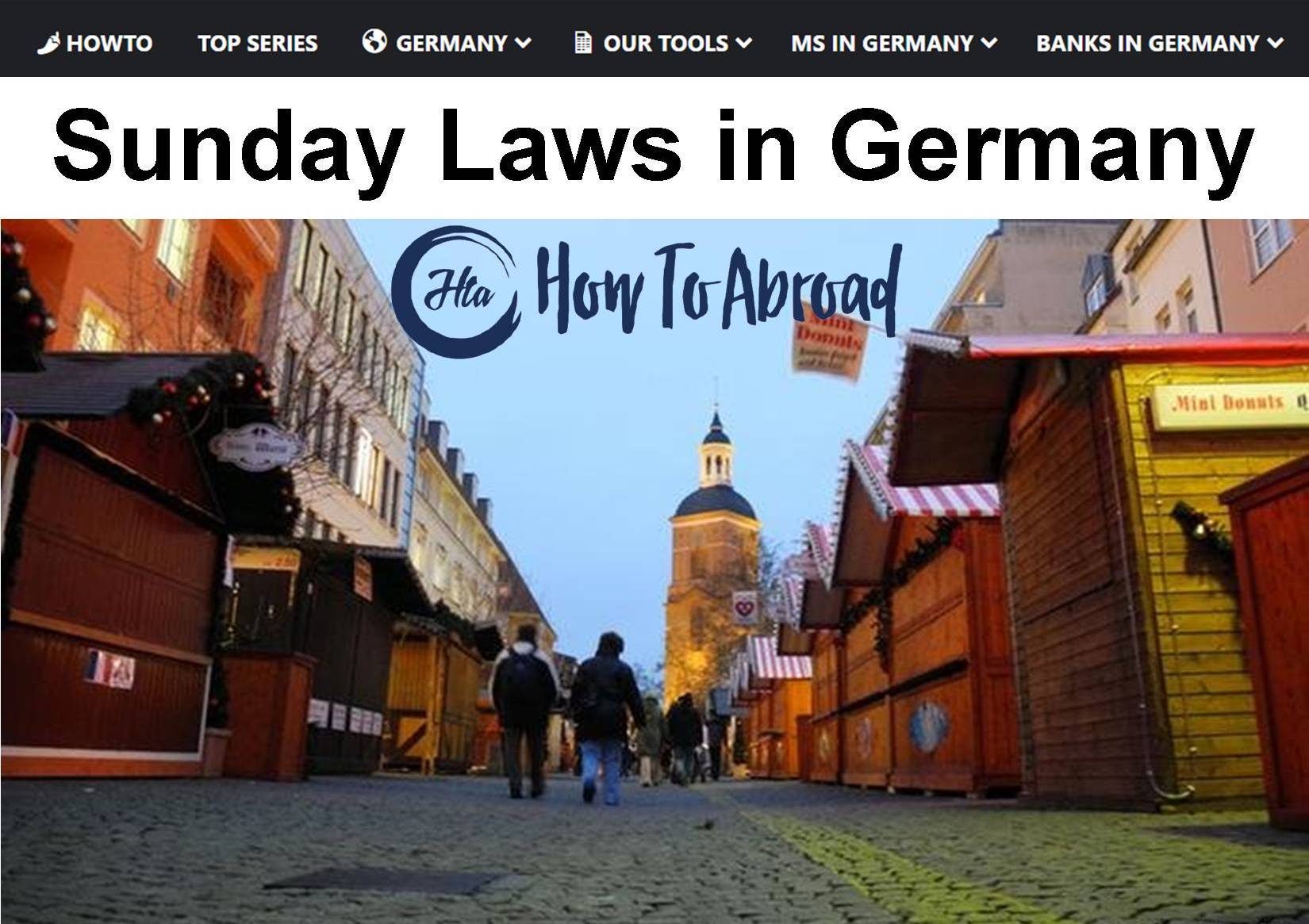
Those who doubt that a Sunday law is looming on the horizon need to read this. HowToAbroad is a website about all things German and provides information and services to travelers entering the country. This website, intended for tourists, answers questions and makes recommendations about how things work in Germany. It is designed to make a good first impression on visitors.
HowToAbroad has published a helpful user guide on how to navigate Germany’s Sunday laws. The guide clearly states that Sunday laws in Germany are real and are based on Roman Catholicism and the desire for Rome to “dominate all aspects of life.”
HowToAbroad wrote the following:
• “This guide will assist you in learning about Sunday laws in Germany. There are few rules and regulations in Germany, and Sunday legislation has been in place for many years. ‘Sunday and holidays recognized by the state will be safeguarded by law as days of relaxation from labor and of spiritual growth,’ says Article 139 of the German constitution.” [1]
• “This practice of keeping the Sabbath stems from the Bible, which states that after creating the world and everything in it, God rested on the seventh day, which is Sunday. Bavarians are staunch traditionalists who believe that Catholicism should dominate all aspects of life. While the practice is founded on faith, it is also a legal requirement.” [1]
• “A few things newcomers to Germany should be aware of is the importance of doing all essential grocery shopping ahead of time, as few states do not have stores open on Sundays or on holidays.” [1]
• “Sundays are really sheltered from noise from neighbors because everyone is at rest enjoying their day off. On Sundays, keep the volume of your music to a minimum.” [1]
• “Sunday legislation allows individuals to take a break from their hectic everyday lives and recuperate.” [1]
Germany’s Sunday laws, which require the closure of businesses and a general halt in secular activities, demonstrate a continued interest in preserving Sunday as the universal day of rest. This is consistent with the historical religious practice of prohibiting certain activities on Sundays through legal enactment so that society can observe it as the official day of rest. These laws reflect a long-standing tradition in Roman Catholicism, where Sunday is considered a sacred day of worship. The persistence of such regulations in a largely secular society demonstrates that religious circles continue to exert significant influence, advocating for the restoration of Sunday as a day of collective pause and spiritual reflection.
“The word of God plainly declares that his law is to be scorned, trampled upon, by the world; there will be an extraordinary prevalence of iniquity. The professed Protestant world will form a confederacy with the man of sin, and the church and the world will be in corrupt harmony. Here the great crisis is coming upon the world. The Scriptures teach that popery is to regain its lost supremacy, and that the fires of persecution will be rekindled through the time serving concessions of the so-called Protestant world” (General Conference Daily Bulletin, April 13, 1891).
The tradition of closing stores on Sundays has deep roots in Germany’s Christian heritage, where Sunday is considered the day of rest and worship. We were warned that one day Protestants and Catholics would unite to promote Sunday rest. This has already happened in Germany, and Germany is one of the most influential countries in the European Union (EU) due to the fact that it has the largest economy in Europe and the fourth largest in the world.
Germany’s Sunday laws seek to preserve the day as a time for rest, family activities, and religious observances. Sunday laws are real, and they’re coming to America. In the United States, there is a push to align our laws with certain Christian principles, such as the blue laws. While some may advocate for America to be officially recognized as a Christian nation, which would mean reintroducing laws reflecting religious values, other secular groups support Sunday rest, but only on the basis of social justice—securing time for family, workers, and even the environment.
Despite their ideological differences, Christians and secularists, Catholics and Protestants, have found common ground in Sunday rest. All parties, with the exception of the Remnant Church of Revelation 12, are coming together to push for Sunday policies in society.
“The word of God teaches that these scenes are to be repeated as Roman Catholics and Protestants shall unite for the exaltation of the Sunday” (Great Controversy, p. 578).
Sources
Leave a Reply